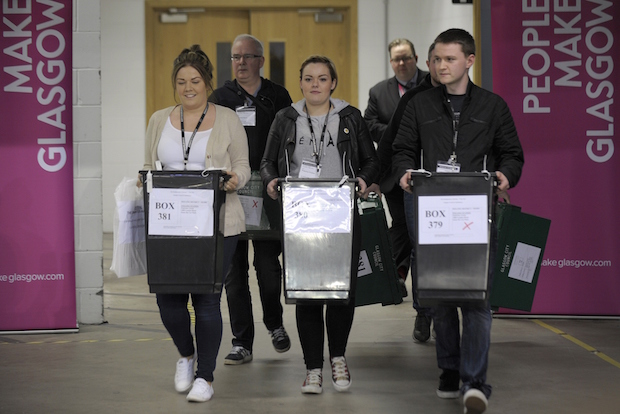MPs could have voted to take back control yesterday, instead—as I say in The Sun this morning—they decided to hand control to the EU.
The EU Council will meet on the 10th of April to decide whether to offer the UK a further extension or not. It remains unlikely that the EU will force a no deal outcome on the UK. But any extension they offer the UK is going to involve this country taking part in the European Elections.
On Monday, MPs will vote again on various Brexit options. The options that might get a majority, though, would go directly against what the Tories said in their election manifesto. Could a government really seek to negotiate something that was directly contradictory to its manifesto? This is the question preoccupying Cabinet Ministers this weekend.
But if something does get a majority, May might choose to ask the House to choose between it and her deal. But the most obvious alternative to it would be a general election.
If a customs union is what wins on Monday, the call is the most finely balanced. Negotiating one would, in the words of one Cabinet Minister, ‘be an enormous breach’ of the Tory manifesto. But fighting a whole election on a customs union would be hard, if not impossible.
But if any of the other options wins, it is simpler for the Tories. Opposing a second referendum or single market membership, which would leave the UK as a rule taker and not end free movement, are clear electoral positions. Yesterday’s vote on the withdrawal agreement allows the Tories to attack Labour MPs in Leave-supporting seats for blocking Brexit, on Brexit day.
There is, though, a huge problem for the Tories with an election: who’d lead them into it?
Theresa May’s commitment was to step down if her deal passed. But despite this, her fighting an election when she has promised to go as soon as the deal is through, would risk looking absurd. Voters would, understandably, ask who the Tories were planning to have as PM for the rest of the parliament, and what their plans were for taxes and public services as well as Brexit.
This means that the Tories would have to have a rapid leadership contest and the winner would then have to them take them straight into the election. There are problems with this. The victor would have little time to reunite the party, develop a domestic agenda and introduce themselves to the country before hitting the campaign trail.
But things wouldn’t be simple for Labour either. It would have to have a clear Brexit position. Does it want a second referendum or a softer Brexit?
What is clear is that the uncertainty holding this country back needs to end. If it hadn’t been for the constitutional meddling of the coalition government, there would be a clear answer to this problem: May would have made the vote on her deal a confidence vote, meaning a general election if it was defeated.
But it is becoming increasingly hard to see how this logjam can be broken without a general election.







Comments